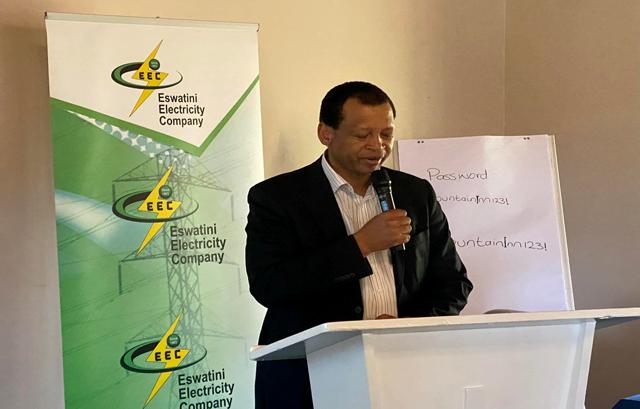Africa-Press – Eswatini. Members of the public are concerned that the Eswatini Electricity Company (EEC) wants to pass on its debts to consumers with the proposed 21.31 per cent tariff increase.
A number of speakers during the tariff review public hearing held at Emtfonjeni Building (EWSC Headquarters) at Ezulwini on Tuesday questioned if the company’s debts did not affect the charges the company wanted to pass on to consumers.
EEC has applied for the price of electricity to be increased by 21.31 per cent for the next two years.
EEC Managing Director (MD), Ernest Mkhonta, said government, which was their main stakeholder, was also their largest debtor among those who owed EEC. Government owes E29 million in debt to the Eswatini Electricity Company (EEC).
“At present, we are sitting at a debt of about E29 million and if government has money, it does pay us and as we do pursue the debt government has with us,” Mkhonta said.
He said as far as the debt was concerned, EEC had customers who owed the company and it also had suppliers it owed. Mkhonta said government was on a 45-day run, as far as the debt was concerned.
He said other customers were on a 30-day run, which was a normal thing in their operations.
Debt
At present, Mkhonta said the biggest debt that EEC had was with the World Bank, which was secured through government. He said with that money, they built transmission lines and substations in the Shiselweni region.
The transmission lines run from Nhlangano to Lavumisa, adding that the project was supposed to stimulate economic activity in the Shiselweni region.
He said the project was also meant to address the frequent power outages experienced in Lavumisa.
Mkhonta further stated that there were factories in Matsanjeni South, which needed a reliable supply of electricity. The MD said at present, the factories experienced frequent power outages because they had to rely on a power source from Nhlangano to operate and that was problematic because Nhlangano and Matsanjeni were further apart.
He said the distribution line was long and it was bound to cause frequent power outages. He said even if the power outages were experienced in Lavumisa, the factories in Matsanjeni were affected, adding that the debt was a 30-year tenure and it had to be paid at the World Bank rates.
The public also wanted to know if EEC declared dividends to its shareholders. EEC General Manager Vusi Gama referred to a dividend policy that was adopted by all the parastatals.
He said when it comes to dividends, they decided to follow that policy and did not elaborate.
However, Mkhonta stated that the profit generated by EEC was invested back into the infrastructure. He made an example of the Lavumisa Solar Power Station, which he said had a capacity of generating 10 megawatts, adding that the project cost E275 million.
Mkhonta further gave an example of three power stations that were in Ndzevane, Ncandweni and Sinceni, which cost a combined sum of E220 million.
He said the funds for these projects were derived from profits made by the company, adding that EEC did not approach any financial institution to request for a loan to undertake the projects.
Businesses subsidise domestic consumers
Business Eswatini (BE) has pleaded with the Eswatini Energy Regulatory Authority (ESERA) and Eswatini Electricity Company (EEC) to amplify the fact that domestic electricity consumers were subsidised by businesses.
BE’s Mbuso Sacolo said it was important for BE, ESERA, and EEC to ensure that such a subsidy was amplified so that the nation could appreciate the existence of businesses in the country.
Sacolo said it was important for the nation to know that businesses did not exist to just satisfy the needs of owners, but were there to help the general population. He said during the current upheavals experienced by Eswatini, it was important for the nation to know that when they loot or burn any business establishment, they were actually shooting themselves in the foot because the costs associated with that damage would come back to haunt them as consumers. Sacolo said the tariff was actually reduced for domestic workers and it was all thanks to the businesses in the country.
Input
ESERA Managing Director, Sikhumbuzo Tsabedze commended Sacolo for his input and stated that the role played by businesses was very vital in keeping the electricity costs in check for the consumers.
He said it was initially proposed that the tariff be at 26 per cent, but it was brought down to 21.31 percent because of the role played by businesses.
EEC General Manager Vusi Gama said the suggestion made by Sacolo was a good one and they had to look into it.
For More News And Analysis About Eswatini Follow Africa-Press







